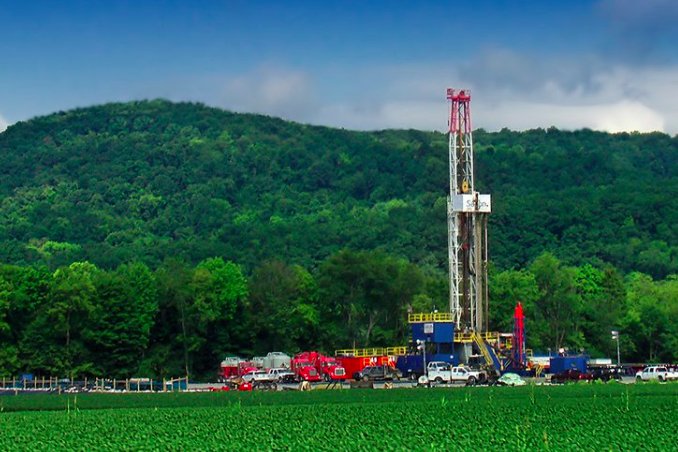
August 16, 2023
 NICHOLAS A. TONELLI/FLICKR CREATIVE COMMONS
NICHOLAS A. TONELLI/FLICKR CREATIVE COMMONS
A pair of taxpayer-funded studies found correlations between fracking and a rare form of childhood cancer, as well as exacerbated asthma symptoms.
The potential adverse health effects of fracking keep piling up. Newly published research shows that people who live close to natural gas extraction sites have a higher risk of childhood lymphoma and exacerbated asthma symptoms at all ages.
The taxpayer-funded research conducted at the University of Pittsburgh looked at populations in western Pennsylvania, where fracking is common, and found that children who lived within 1 mile of a natural gas well were five to seven times more likely to develop lymphoma – a type of cancer that is rarely diagnosed in children – than children who lived at least 5 miles away from the sites.
Researchers also looked at asthma patients and found that those living closer to natural gas wells were more likely to experience severe asthmatic episodes during natural gas extractions than those who lived farther away.
Notably, the studies did not conclusively prove that the health problems were caused by fracking, but that there was a strong association between the natural gas development activity and those particular health issues. The research was commissioned by former Pennsylvania Gov. Tom Wolf in 2019 in response to complaints from families who believed their children became ill as a result of fracking, which has been done extensively in western and central Pennsylvania for more than a decade.
The $2.5 million research project is the latest to suggest links between natural gas fracking and negative health consequences among nearby residents, and it's not the first time researchers have noticed a correlation between fracking and childhood cancer.
In 2022, a multiyear study found that children who lived within 2 kilometers of an oil and gas development well were twice as likely to develop childhood leukemia. That research also examined populations in Pennsylvania.
In a 2016 study, asthma patients residing near natural gas development sites were shown to have an increased risk of asthma exacerbations. The following year, another study focused on Pennsylvanians showed that people who lived closer to fracking sites had a higher risk of experiencing nasal stressors, migraine headaches and high levels of fatigue than those who didn't.
Natural gas development may also have adverse effects on the unborn. In 2020, a study funded by the National Institute of Environmental Health Sciences found that pregnant women living near oil and gas wells in California were at a greater risk of having low birth weight babies, while another study published in 2018 showed that mothers living near fracking sites in Texas had an increased risk of extreme preterm birth.
The practice of fracking – or hydraulic fracturing – to extract natural gas from rock formations in the ground has been a highly controversial topic in Pennsylvania for years, both due to concerns about its impact on the environment as well as how it may impact human health. In 2015, Pennsylvania sued a fracking company for deceptive business practices that allegedly deprived landowners of millions of dollars.
Prior to this latest round of research, dozens of people in southwestern Pennsylvania were diagnosed with a rare bone cancer called Ewing sarcoma. That illness has not formally been linked to fracking, but is nonetheless one of the many causes of concern raised by residents and policymakers.
For its part, the natural gas industry has been critical of such research, insisting that a credible link between fracking and childhood cancers has not been found. And while correlation does not always equal causation, the mountain of evidence linking fracking to various health problems does seem to keep growing.